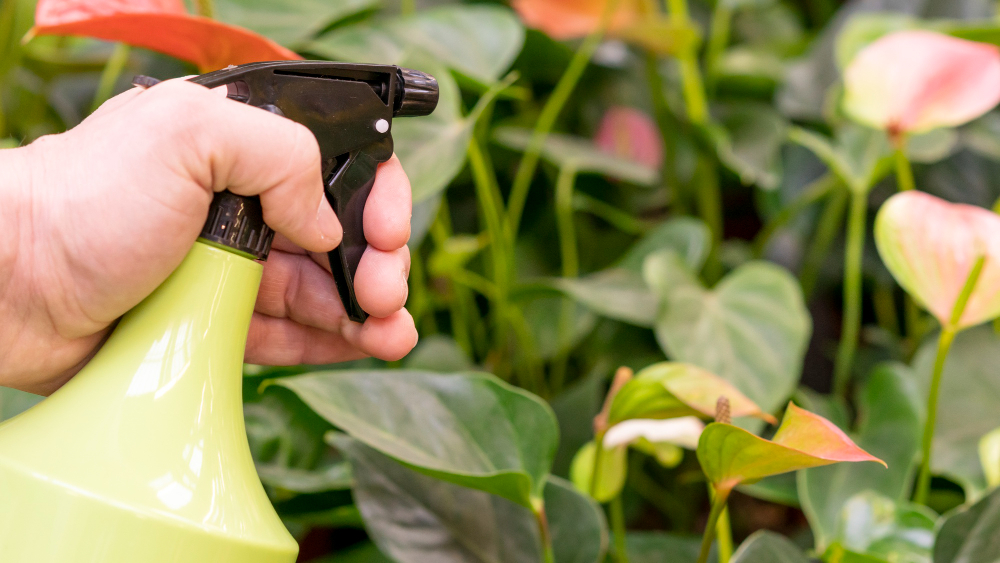Natural Solutions for Healthy Vegetable Gardens
Imagine stepping into a flourishing vegetable garden—vibrant leaves unfurling under the morning sun, blossoms promising a bountiful harvest, and not a single chemical pesticide in sight. Achieving this vision is possible, and it all begins with eco-friendly pest control. By choosing natural solutions to manage unwanted insects, you create a healthier environment not only for your vegetables but also for pollinators, soil life, and the broader ecosystem. With a bit of knowledge and a willingness to experiment, you’ll soon discover that sustainable, organic methods offer effective, long-term protection for your beloved crops.
Understanding the Basics of Natural Pest Management
To truly embrace eco-friendly pest control, it’s essential to recognize that pests are part of a balanced ecosystem. Instead of relying on harsh chemicals, successful gardeners harness nature’s own defenses to maintain a stable environment. By encouraging biodiversity and working with natural predators, you’ll foster a self-regulating system that keeps pest populations in check.
Why Choose Organic Pest Prevention?
- Environmental Health: Synthetic pesticides can seep into groundwater and harm beneficial insects, birds, and soil microbes. Natural methods safeguard wildlife and reduce chemical runoff.
- Sustainable Soil Fertility: Chemicals often degrade soil quality over time. Organic approaches support soil fertility, helping crops thrive season after season.
- Better Produce Quality: Vegetables grown without synthetic pesticides tend to be tastier, more nutrient-rich, and safer for you and your family.
For more insights into nurturing soil health, explore our post on The Science of Soil: Understanding and Improving Soil Composition for Better Yields.
Building a Healthy Garden Ecosystem: The First Step in Eco-Friendly Pest Control
One of the most effective ways to achieve sustainable pest management is by cultivating a robust, biodiverse environment. When your garden teems with beneficial insects, well-nourished plants, and vibrant soil life, pests have a harder time gaining a foothold.
Fostering Beneficial Insects and Natural Predators
Encouraging beneficial insects to settle in your garden is a cornerstone of eco-friendly pest control. These allies—such as ladybugs, lacewings, and hoverflies—prey on common pests like aphids and thrips. Birds, frogs, and toads also contribute significantly to insect regulation.
Tips to Attract Beneficial Insects:
- Plant native flowering species to provide nectar and pollen.
- Allow a small section of your garden to remain wild, offering shelter and alternative food sources.
- Avoid broad-spectrum insecticides that harm both pests and their natural predators.
Selecting the Right Plants for Natural Pest Resistance
Strategic plant selection can make a huge difference in reducing pest problems. Some varieties are naturally more resistant to certain insects, while others release scents that deter pests. By integrating these plants into your layout, you create an environment less susceptible to infestations.
Companion Planting: Harnessing Plant Partnerships
Companion planting involves growing specific crops together so they benefit from each other’s natural defenses. For example, marigolds release compounds that repel nematodes, while aromatic herbs like rosemary and sage deter common garden pests. When combined, these plants create a protective barrier around your vegetables.
Popular Companion Plant Pairings:
- Tomatoes with basil: Basil repels whiteflies and aphids that might target tomatoes.
- Cucumbers with nasturtiums: Nasturtiums draw aphids away from cucumbers, acting as a trap crop.
- Carrots with chives: Chives help mask carrots’ scent, making them harder for pests to locate.
Learn more about complementary plantings in our guide on Unveiling the Power of Companion Planting.
Organic Soil Amendments and Fertility: A Strong Foundation for Pest-Free Gardens
Healthy soil nourishes robust plants that can better withstand pest pressures. Incorporating organic matter, such as compost or well-rotted manure, improves soil structure, moisture retention, and nutrient availability. Stronger plants translate to fewer issues with pests and diseases.
Enhancing Soil Health for Natural Pest Resistance
- Compost: Regularly add compost to your garden beds. This improves soil fertility and fosters a rich microbial community that supports plant immunity.
- Organic Mulches: Apply straw, shredded leaves, or wood chips around your plants to conserve moisture and regulate soil temperature. Mulch also provides shelter for beneficial organisms that feed on pests.
- Crop Rotation: By changing where you plant each year, you disrupt pest life cycles and prevent nutrient depletion. For more tips, see The Essential Guide to Crop Rotation: Boosting Soil Health and Yield.
Non-Toxic Pest Barriers: Physical and Mechanical Defenses
When pests persist despite your ecosystem-building efforts, consider introducing physical barriers. Simple tools and techniques can create an effective shield, preventing harmful insects from reaching your crops.
Using Row Covers, Netting, and Traps
- Floating Row Covers: Lightweight fabrics draped over plants keep pests like cabbage moths and flea beetles at bay. Remove them during pollination to let beneficial insects access blooms.
- Insect Netting: Fine-meshed nets exclude tiny insects such as whiteflies and thrips. Ensure good ventilation beneath the netting to prevent humidity buildup.
- Sticky Traps: Yellow or blue sticky cards placed near susceptible crops trap flying insects. While not a standalone solution, they can alert you to pest presence and help reduce populations.
Botanical Sprays and DIY Solutions: Safe, Eco-Friendly Remedies
When pests threaten to overwhelm your garden, homemade botanical sprays and solutions can offer gentle yet effective relief. These treatments often rely on ingredients like garlic, chili peppers, or neem oil—substances that deter pests without harming humans, pets, or the environment.
Crafting Your Own Natural Pest Sprays
- Garlic and Soap Spray: Blend garlic, water, and mild liquid soap, then strain and apply to infested plants. The pungent scent repels aphids and mites.
- Chili Pepper Solution: A mixture of chili peppers, water, and soap creates a spicy repellent that irritates soft-bodied insects.
- Neem Oil Treatment: Derived from the neem tree, this oil disrupts insect feeding and breeding. Follow label instructions and avoid using it during sunny, hot conditions.
For more sustainable pest management techniques, visit the EPA’s Integrated Pest Management Resources for science-backed insights.
Encouraging Biodiversity and Habitat Diversity for Lasting Eco-Friendly Pest Control
A garden filled with diverse plant species, varying heights, and layered canopies attracts a multitude of beneficial organisms. By blending annuals, perennials, shrubs, and trees, you establish habitats that support a broader range of insects, birds, and small mammals—all of which play a role in maintaining pest balance.
Designing a Multifunctional Garden Landscape
- Layered Vegetation: Plant taller crops or fruit trees to provide shade and structure. Underneath, grow shade-tolerant flowers and herbs that attract beneficial insects.
- Native Plants: Local plant species are adapted to your region’s climate and soil conditions, making them more resilient and less appealing to pests.
- Wild Corners: Allow small, untamed areas where beneficial insects and predators find refuge, ensuring long-term pest suppression.
Leveraging Natural Predators: Ladybugs, Lacewings, and More
Sometimes, the simplest solution to pest problems is to introduce natural predators directly. Ladybugs and lacewings, for example, feed on aphids and mites. Certain parasitic wasps lay eggs in pest larvae, controlling populations from within. By encouraging these allies—or even purchasing them from reputable suppliers—you add another layer of defense.
Tips for Attracting and Maintaining Beneficial Predators
- Offer a Water Source: A shallow dish with stones or a birdbath can entice insects and small predators to linger.
- Avoid Synthetic Chemicals: Many predators are sensitive to pesticides, so keep your garden chemical-free to support their presence.
- Diverse Plantings: As mentioned, a variety of plants ensures a continuous food supply for these helpful creatures.
Avoiding Common Eco-Friendly Pest Control Mistakes
While natural methods are generally safer for the environment, it’s still possible to overdo it or apply them incorrectly. Understanding the potential pitfalls can help you achieve consistent, successful results.
Common Pitfalls and How to Overcome Them
- Over-Reliance on a Single Method: Just as with chemical pesticides, relying on one organic technique can lead to imbalances. Rotate your methods and diversify your approaches.
- Incorrect Timing: Apply sprays or introduce predators when pests are most active. Spraying too early or releasing predators too late may reduce effectiveness.
- Ignoring Soil Health: Even the best eco-friendly pest control strategies fall short if plants suffer from poor soil conditions.
Scaling Up: Adapting Eco-Friendly Pest Control to Larger Gardens and Farms
The principles of eco-friendly pest control apply equally to small backyard gardens and larger-scale operations. As you expand your growing area, consider investing in more robust systems—such as permanent insectary plantings or regular cover cropping—to maintain equilibrium.
Sustainable Farming Practices
- No-Till or Reduced-Till Agriculture: Minimizing disturbance preserves soil structure and beneficial organisms that help control pests.
- Agroforestry and Intercropping: Integrating trees, shrubs, and various crop species on a farm scale encourages biodiversity and pest resilience.
- Biological Controls at Scale: Commercial growers can work with suppliers to release beneficial insects in controlled numbers for targeted pest suppression.
Adjusting to Seasonal Changes: Year-Round Eco-Friendly Pest Control
Pest pressures shift with the seasons. Spring may bring aphids and flea beetles, while summer ushers in squash bugs and tomato hornworms. By anticipating these cycles and adjusting your strategies accordingly, you ensure continuous protection.
Seasonal Adjustments
- Spring: Start companion planting early to deter emerging pests and encourage beneficial insects.
- Summer: Use shade cloths or row covers to shield vulnerable crops from intense pest activity.
- Fall and Winter: Remove debris, add compost, and sow cover crops to prepare the soil for next season’s challenges.
Long-Term Benefits of Embracing Eco-Friendly Pest Control
When you commit to natural, sustainable pest management, your garden evolves into a vibrant ecosystem that supports life at every level. Over time, you’ll notice healthier soil, fewer outbreaks, and consistently abundant harvests—all without relying on synthetic chemicals.
Building a Legacy of Healthy Gardening
- Increased Resilience: A self-regulating environment requires fewer interventions, saving time and money.
- Enhanced Biodiversity: More organisms—both plant and animal—benefit from your careful stewardship.
- Lasting Satisfaction: Knowing you’ve created a thriving, sustainable garden fosters pride and a deeper connection with nature.
By integrating eco-friendly pest control methods into your gardening routine, you lay the groundwork for a sustainable, bountiful vegetable plot that thrives year after year. Instead of waging war against pests, you’ll nurture a balanced ecosystem where natural predators, diverse plants, and healthy soil work together to keep threats in check. Embrace these natural solutions, and watch as your garden blossoms into a lush, productive haven for you and the wildlife that calls it home.
Learn more about this topic with The Year-Round Vegetable Garden for Beginners.


Leave a Reply